
Reading List
Each of these listings is a link. Click on it to learn more or get yourself a copy!
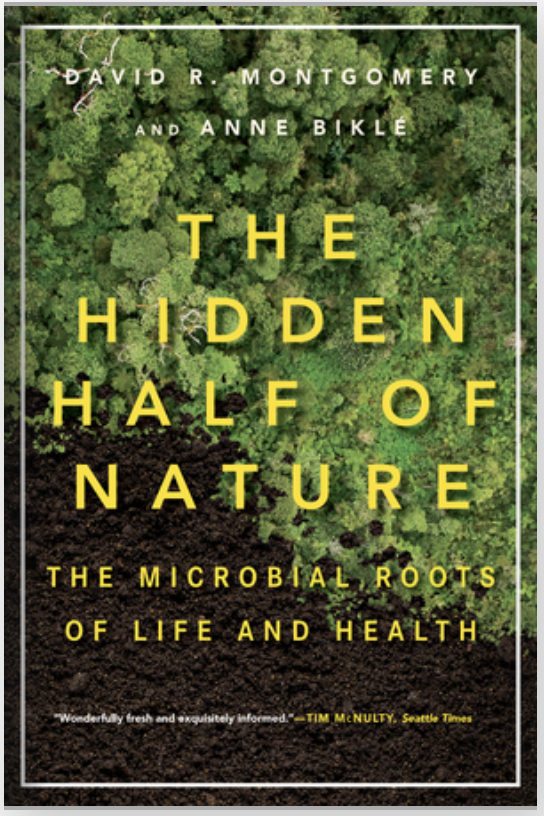 This book reveals why good health—for people and for plants—depends on microbes. With Montgomery's excellent story-telling skills, this book skillfully weaves personal experience with hard science to draw compelling connections between the health of microbes in the soil to healthy plants to a healthy human gut. The book reads like a novel but has a solidly-supported message.
This book reveals why good health—for people and for plants—depends on microbes. With Montgomery's excellent story-telling skills, this book skillfully weaves personal experience with hard science to draw compelling connections between the health of microbes in the soil to healthy plants to a healthy human gut. The book reads like a novel but has a solidly-supported message.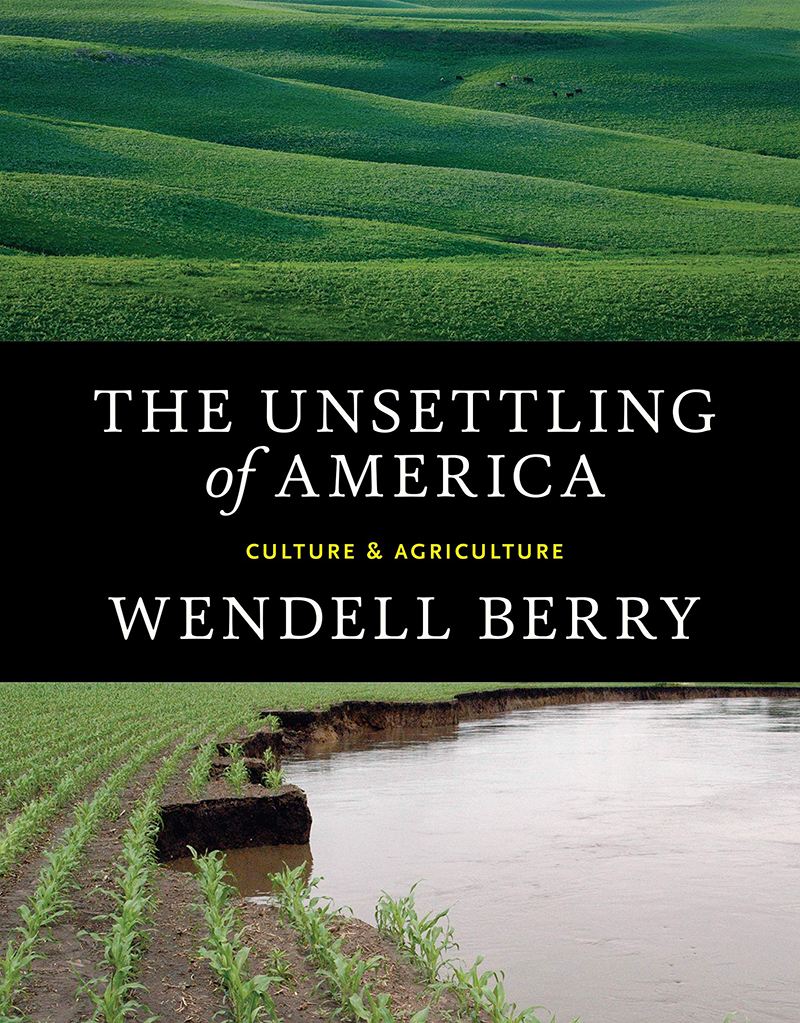 This classic, published in 1977, is just as relevant today if not more so. In it Berry speaks with great wisdom about how industrial agriculture has divorced families from their agricultural roots while damaging the land, farm economies, and communities. He argues that an integrated agricultural system is needed for the wellbeing of the nation. Several mentor-farmers regard Wendell Berry as one of their greatest influences. He is both a farmer himself and a prolific author of novels, short stories, essays, and poems.
This classic, published in 1977, is just as relevant today if not more so. In it Berry speaks with great wisdom about how industrial agriculture has divorced families from their agricultural roots while damaging the land, farm economies, and communities. He argues that an integrated agricultural system is needed for the wellbeing of the nation. Several mentor-farmers regard Wendell Berry as one of their greatest influences. He is both a farmer himself and a prolific author of novels, short stories, essays, and poems.
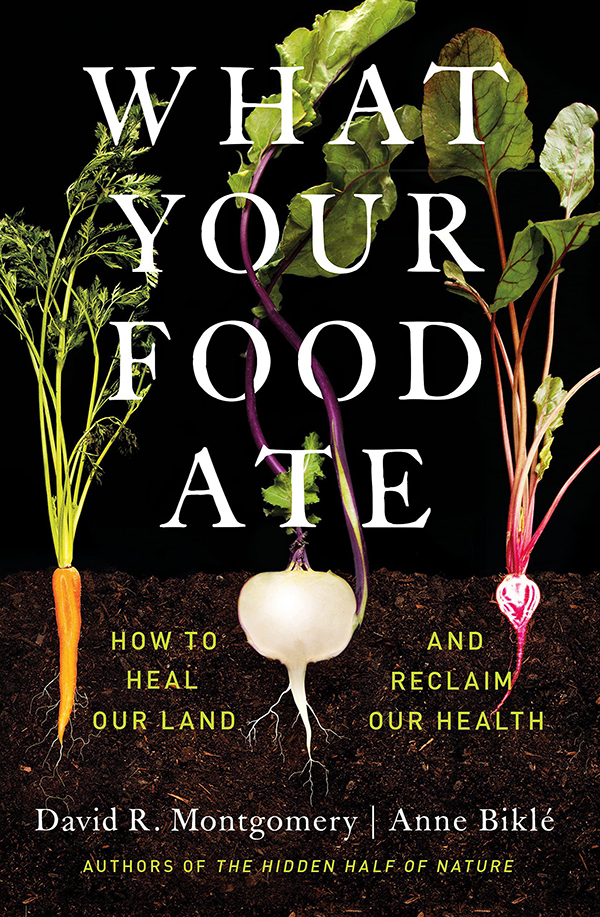 This highly readable, fun, and extremely interesting book is a great introduction to regenerative agriculture, soil health, human nutrition and gut microbiology and how those topics are intimately related. A fascinating exploration—highly recommended!
This highly readable, fun, and extremely interesting book is a great introduction to regenerative agriculture, soil health, human nutrition and gut microbiology and how those topics are intimately related. A fascinating exploration—highly recommended!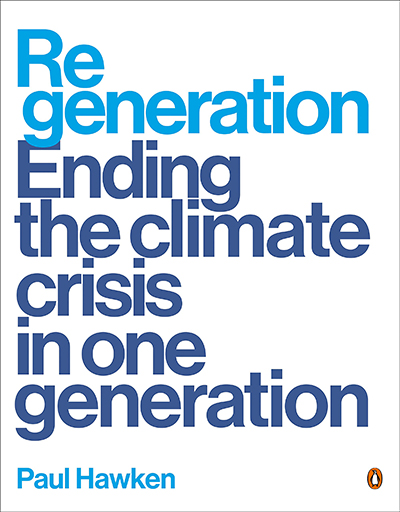 Regeneration offers an optimistic and socially-engaged new approach to addressing climate change by weaving justice, climate, biodiversity, equity, and human dignity into action, policy, and transformation. By addressing current real world problems that harm people, communities and the planet today—and not just existential threats—this book puts forth doable actions that can be put into place now with the support of wide swaths of people. Regeneration describes how an inclusive movement can engage the majority of humanity to save the world from the threat of global warming, with climate solutions that directly serve our children, the poor, and the excluded.
Regeneration offers an optimistic and socially-engaged new approach to addressing climate change by weaving justice, climate, biodiversity, equity, and human dignity into action, policy, and transformation. By addressing current real world problems that harm people, communities and the planet today—and not just existential threats—this book puts forth doable actions that can be put into place now with the support of wide swaths of people. Regeneration describes how an inclusive movement can engage the majority of humanity to save the world from the threat of global warming, with climate solutions that directly serve our children, the poor, and the excluded. 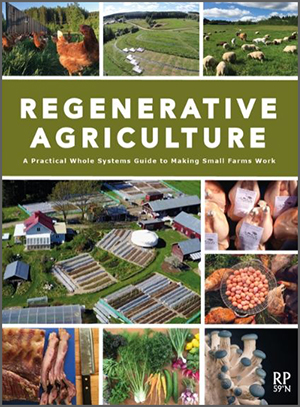 Richard Perkins presents a clear and pragmatic approach to designing, installing and managing profitable small farms that are built around his vision of restoring the dignity of rural stewardship through intelligent human-scale farming. It provides a deep look into the ecological, practical, personal and financial realms of making small farms work.
Richard Perkins presents a clear and pragmatic approach to designing, installing and managing profitable small farms that are built around his vision of restoring the dignity of rural stewardship through intelligent human-scale farming. It provides a deep look into the ecological, practical, personal and financial realms of making small farms work.
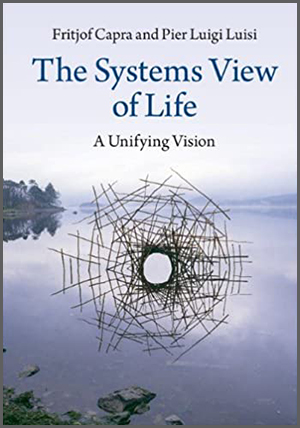 Two of the world’s leading thinkers in systems theory collaborated on this textbook which presents a coherent systemic framework integrating the biological, cognitive, social and ecological. It then discusses philosophical, social and political implications of this new paradigm. Very comprehensive.
Two of the world’s leading thinkers in systems theory collaborated on this textbook which presents a coherent systemic framework integrating the biological, cognitive, social and ecological. It then discusses philosophical, social and political implications of this new paradigm. Very comprehensive. Some of the biggest problems facing the world—war, hunger, poverty, and environmental degradation—are essentially system failures. Quick fix solutions, done by focusing on one aspect of a situation in isolation from the others, aren't good enough. This primer, edited by Diana Wright of the Sustainability Institute, shows how to develop systems-thinking skills that thought leaders across the globe consider critical for 21st-century life. It helps readers find proactive and effective solutions by avoiding confusion and helplessness.
Some of the biggest problems facing the world—war, hunger, poverty, and environmental degradation—are essentially system failures. Quick fix solutions, done by focusing on one aspect of a situation in isolation from the others, aren't good enough. This primer, edited by Diana Wright of the Sustainability Institute, shows how to develop systems-thinking skills that thought leaders across the globe consider critical for 21st-century life. It helps readers find proactive and effective solutions by avoiding confusion and helplessness.
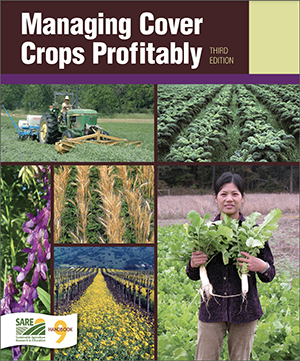 Farmers around the country are increasingly looking at the long-term contributions of cover crops to their whole farm system. Some of the most successful are those who have seen the benefits and are committed to making cover crops work for them.They are re-tooling their cropping systems to better fit cover crop growth patterns, rather than squeezing cover crops into their existing system,time permitting. This 3rd edition of "Managing Cover Crops Profitably" aims to capture farmer and other research results from the past ten years and adds it to the knowledge of how to use this approach for soil health, conservation purposes, and increased farm profitability and sustainability.
Farmers around the country are increasingly looking at the long-term contributions of cover crops to their whole farm system. Some of the most successful are those who have seen the benefits and are committed to making cover crops work for them.They are re-tooling their cropping systems to better fit cover crop growth patterns, rather than squeezing cover crops into their existing system,time permitting. This 3rd edition of "Managing Cover Crops Profitably" aims to capture farmer and other research results from the past ten years and adds it to the knowledge of how to use this approach for soil health, conservation purposes, and increased farm profitability and sustainability.
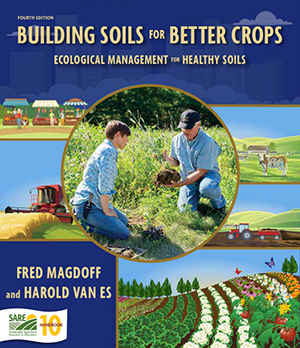 The 4th edition of Building Soils for Better Crops provides step-by-step information on soil-improving practices as well as in-depth background—from what soil is to the importance of organic matter. Case studies of farmers from across the country provide inspiring examples of how soil—and whole farms—have been renewed through these techniques.
The 4th edition of Building Soils for Better Crops provides step-by-step information on soil-improving practices as well as in-depth background—from what soil is to the importance of organic matter. Case studies of farmers from across the country provide inspiring examples of how soil—and whole farms—have been renewed through these techniques. 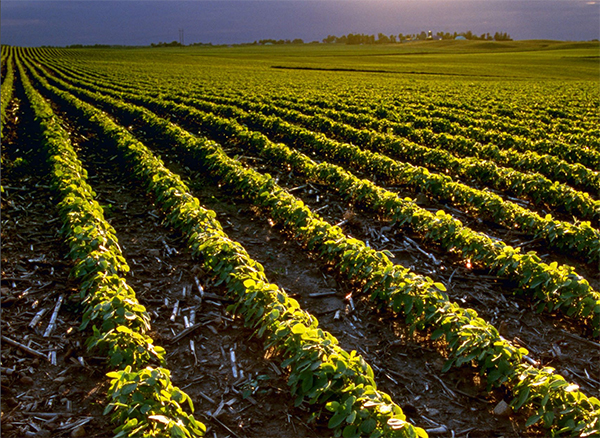 Free download that includes the climate impacts of food, agriculture and land use, how we can reduce greenhouse emissions from agriculture, how to create carbon sinks on working land, how much carbon can we sequester and for how long, and conclusions based on the latest research.
Free download that includes the climate impacts of food, agriculture and land use, how we can reduce greenhouse emissions from agriculture, how to create carbon sinks on working land, how much carbon can we sequester and for how long, and conclusions based on the latest research.
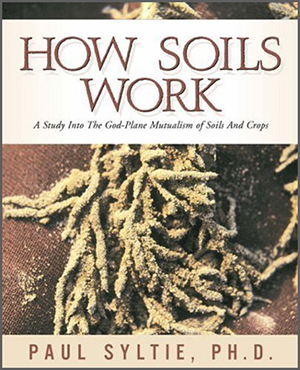 Can you successfully bring together science, agronomy, and Christian spirituality? This PhD farmer from Minnesota travels worldwide to help farmers improve their health and productivity by returning the soil to what he believes is its God-intended vitality. It's a good introduction to soil science with an interesting point of view.
Can you successfully bring together science, agronomy, and Christian spirituality? This PhD farmer from Minnesota travels worldwide to help farmers improve their health and productivity by returning the soil to what he believes is its God-intended vitality. It's a good introduction to soil science with an interesting point of view.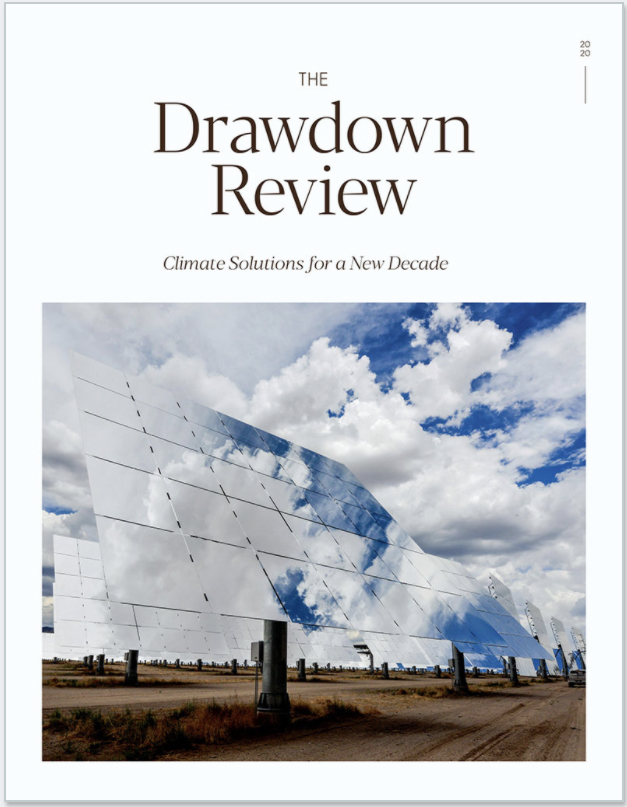 This is the first major update to the New York Times Bestseller "Drawdown." It contains 10 key insights for possibility and action across sectors. The goal behind the Project Drawdown is to reverse the buildup of atmospheric carbon within thirty years using solutions that are already possible, well understood, and analyzed based on peer-reviewed science. There is no time to waste so, in addition to a hardcover copy of the book that can be bought to support the project, a pdf version is now available to all as a free download.
This is the first major update to the New York Times Bestseller "Drawdown." It contains 10 key insights for possibility and action across sectors. The goal behind the Project Drawdown is to reverse the buildup of atmospheric carbon within thirty years using solutions that are already possible, well understood, and analyzed based on peer-reviewed science. There is no time to waste so, in addition to a hardcover copy of the book that can be bought to support the project, a pdf version is now available to all as a free download. “Charles Massy has written a definitive masterpiece that takes its place along with the writings of Aldo Leopold, Wendell Berry, Masanobu Fukuoka, Humberto Maturana, and Michael Pollan. No work has more brilliantly defined regenerative agriculture and the breadth of its restorative impact upon human health, biodiversity, climate, and ecological intelligence.” –Paul Hawken
“Charles Massy has written a definitive masterpiece that takes its place along with the writings of Aldo Leopold, Wendell Berry, Masanobu Fukuoka, Humberto Maturana, and Michael Pollan. No work has more brilliantly defined regenerative agriculture and the breadth of its restorative impact upon human health, biodiversity, climate, and ecological intelligence.” –Paul Hawken
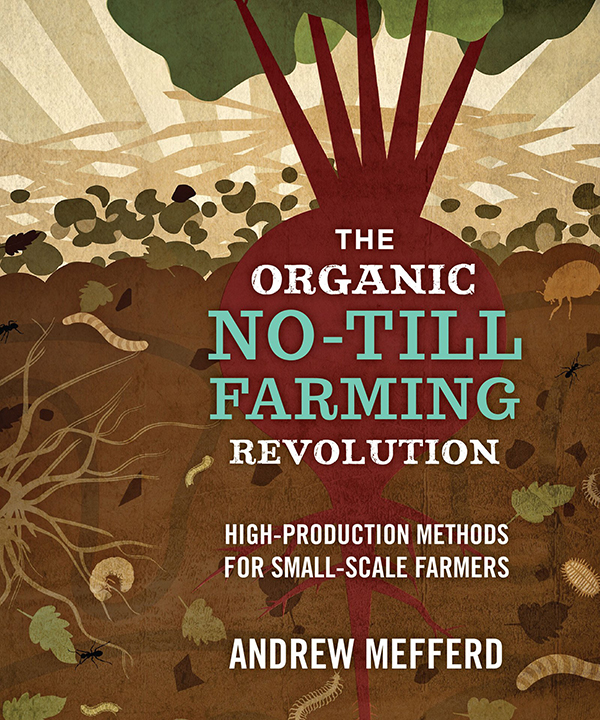 This is a comprehensive farmer-developed guidebook showing how no-till approaches can lower barriers to starting a small farm, reduces greenhouse gas emissions, increases efficiency and profitability, and promotes soil health. It includes a decision-making framework for the four no-till methods: occulation, solarization, organic mulches grown in place, and applied to beds; ideas for starting a no-till farm or transitioning a working farm; and a list of tools, supplies, and sources.
This is a comprehensive farmer-developed guidebook showing how no-till approaches can lower barriers to starting a small farm, reduces greenhouse gas emissions, increases efficiency and profitability, and promotes soil health. It includes a decision-making framework for the four no-till methods: occulation, solarization, organic mulches grown in place, and applied to beds; ideas for starting a no-till farm or transitioning a working farm; and a list of tools, supplies, and sources.
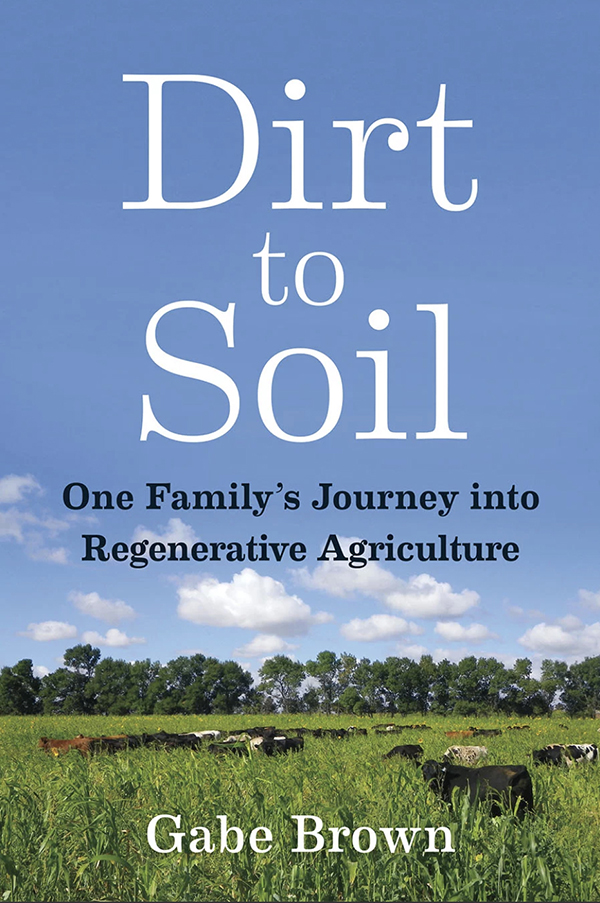 When a series of weather-related crop disasters put the Browns into a desperate financial situation, they started making changes to their farm in order to survive that led them straight into the world of regenerative agriculture. This book tells the story of them finding a new way to farm using no-till techniques, diverse cover crops, and managed grazing. As a result they not only saved the family farm, they’ve expanded it while giving up most herbicides, insecticides, and synthetic fertilizers. The book serves as a primer for others who want to follow suit.
When a series of weather-related crop disasters put the Browns into a desperate financial situation, they started making changes to their farm in order to survive that led them straight into the world of regenerative agriculture. This book tells the story of them finding a new way to farm using no-till techniques, diverse cover crops, and managed grazing. As a result they not only saved the family farm, they’ve expanded it while giving up most herbicides, insecticides, and synthetic fertilizers. The book serves as a primer for others who want to follow suit.
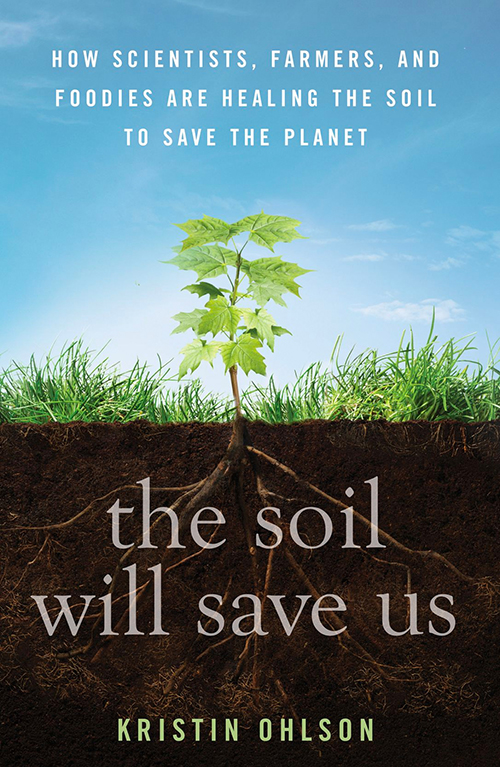 Growing up in a family of farmers and avid gardeners, Ohlson has had an appreciation for the soil for much of her life. One day a chance conversation with a chef opened up a realization of how science, farming, food, and environmentalism intersect. Ohlson introduces visionary scientists, farmers, foodies, ranchers, and landscapers, whose work demonstrates how the earth can be healed and offers the hope that seemingly disparate problems like climate change, air and water pollution, food quality, and even obesity could have the same low-tech solution.
Growing up in a family of farmers and avid gardeners, Ohlson has had an appreciation for the soil for much of her life. One day a chance conversation with a chef opened up a realization of how science, farming, food, and environmentalism intersect. Ohlson introduces visionary scientists, farmers, foodies, ranchers, and landscapers, whose work demonstrates how the earth can be healed and offers the hope that seemingly disparate problems like climate change, air and water pollution, food quality, and even obesity could have the same low-tech solution.
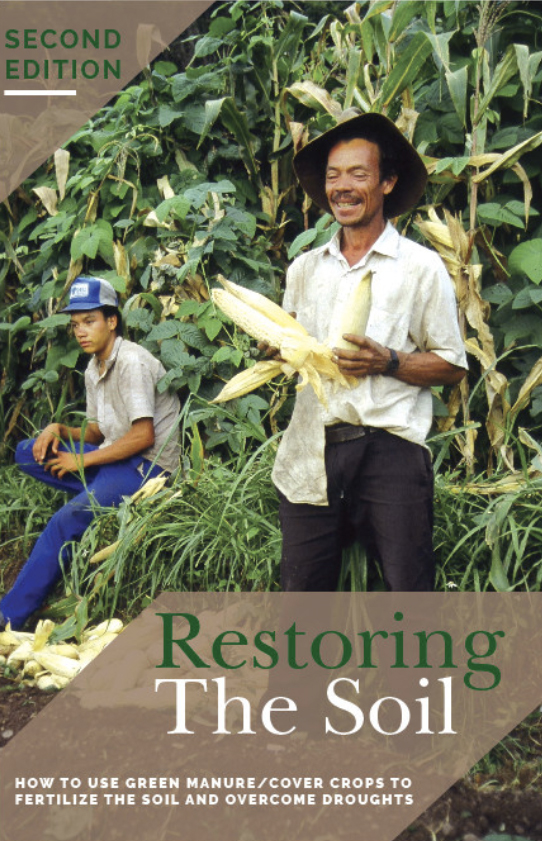 Green manure/cover crops enrich the soil while providing numerous other benefits such as weed suppression and food for human and/or animal consumption, and as a tool for sequestering carbon and weathering droughts caused by climate change. Roland Bunch's second edition of "Restoring the Soil" helps practitioners and farmers learn about this approach and choose context-appropriate systems already successfully used by other farmers. Part 1 of the book explains benefits and limitations of this approach, common misconceptions and mistakes to avoid. Part 2 guides the reader through a unique, incremental decision-making process for selecting the green manure/cover crop systems with the most potential for success in their setting.
Green manure/cover crops enrich the soil while providing numerous other benefits such as weed suppression and food for human and/or animal consumption, and as a tool for sequestering carbon and weathering droughts caused by climate change. Roland Bunch's second edition of "Restoring the Soil" helps practitioners and farmers learn about this approach and choose context-appropriate systems already successfully used by other farmers. Part 1 of the book explains benefits and limitations of this approach, common misconceptions and mistakes to avoid. Part 2 guides the reader through a unique, incremental decision-making process for selecting the green manure/cover crop systems with the most potential for success in their setting.
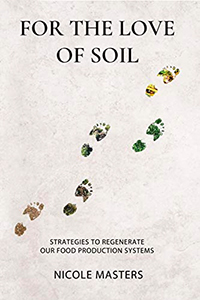 Soil advocate and agroecologist Nicole Masters contends that we can no longer treat soil like dirt. In this book, she shows why we need a soil-first approach to regenerate landscapes, restore natural cycles, and bring vitality back to ecosystems. She translates the often complex and technical know-how of soil into more digestible terms through case studies from regenerative farmers, growers, and ranchers in Australia and North America. She also provides land managers with an action plan to kickstart their own soil’s well-being.
Soil advocate and agroecologist Nicole Masters contends that we can no longer treat soil like dirt. In this book, she shows why we need a soil-first approach to regenerate landscapes, restore natural cycles, and bring vitality back to ecosystems. She translates the often complex and technical know-how of soil into more digestible terms through case studies from regenerative farmers, growers, and ranchers in Australia and North America. She also provides land managers with an action plan to kickstart their own soil’s well-being.
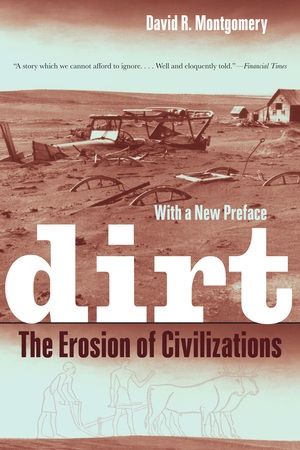 We rarely think about the dirt beneath our feet, but this fascinating but disturbing book shows how important soil is to the rise and fall of civilization. Montgomery examines the role of soil use and abuse in ancient civilizations and modern times, showing how not caring for the health of the soil undermines our survival. He also describes how the recent rise of organic and no-till farming could help us avoid the fate of previous civilizations.
We rarely think about the dirt beneath our feet, but this fascinating but disturbing book shows how important soil is to the rise and fall of civilization. Montgomery examines the role of soil use and abuse in ancient civilizations and modern times, showing how not caring for the health of the soil undermines our survival. He also describes how the recent rise of organic and no-till farming could help us avoid the fate of previous civilizations.
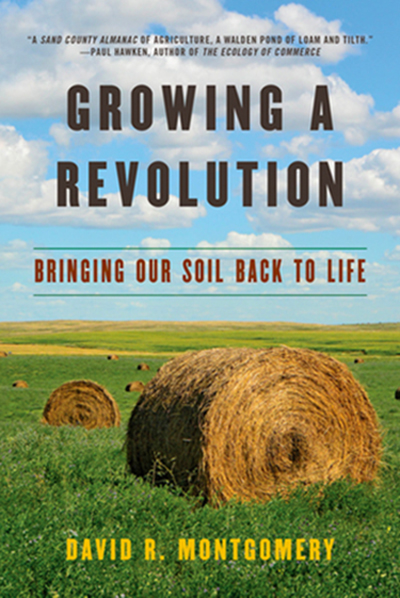 Geologist David R. Montgomery has traveled the world, meeting farmers at the forefront of an agricultural movement to restore soil health. Relating stories from Kansas to Ghana, he shows how adopting the three basic tenets of conservation agriculture—no till, cover crops, and crop biodiversity—is a solution to some of the biggest challenges of our time.
Geologist David R. Montgomery has traveled the world, meeting farmers at the forefront of an agricultural movement to restore soil health. Relating stories from Kansas to Ghana, he shows how adopting the three basic tenets of conservation agriculture—no till, cover crops, and crop biodiversity—is a solution to some of the biggest challenges of our time.
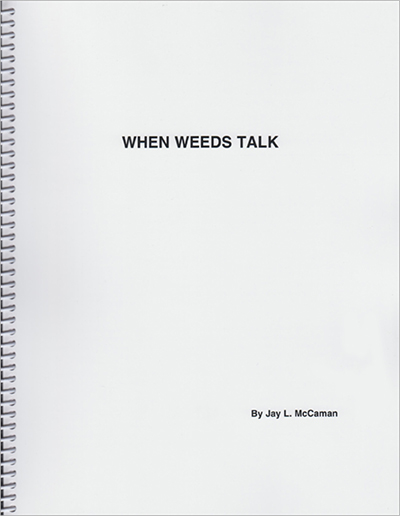 The presence of specific species of weeds tends to correlate with specific mineral imbalances in the soil. The type of weeds that appear change when the soil is degenerated and shift again when the soil environment improves. In this second edition of this book, originally titled Weeds and Why They Grow, over 800 weed species are detailed along with the chemical analysis of the accompanying soils. This book allows the reader to determine soil conditions based upon weed populations and choose the appropriate mineral supplementation needed to improve it.
The presence of specific species of weeds tends to correlate with specific mineral imbalances in the soil. The type of weeds that appear change when the soil is degenerated and shift again when the soil environment improves. In this second edition of this book, originally titled Weeds and Why They Grow, over 800 weed species are detailed along with the chemical analysis of the accompanying soils. This book allows the reader to determine soil conditions based upon weed populations and choose the appropriate mineral supplementation needed to improve it.
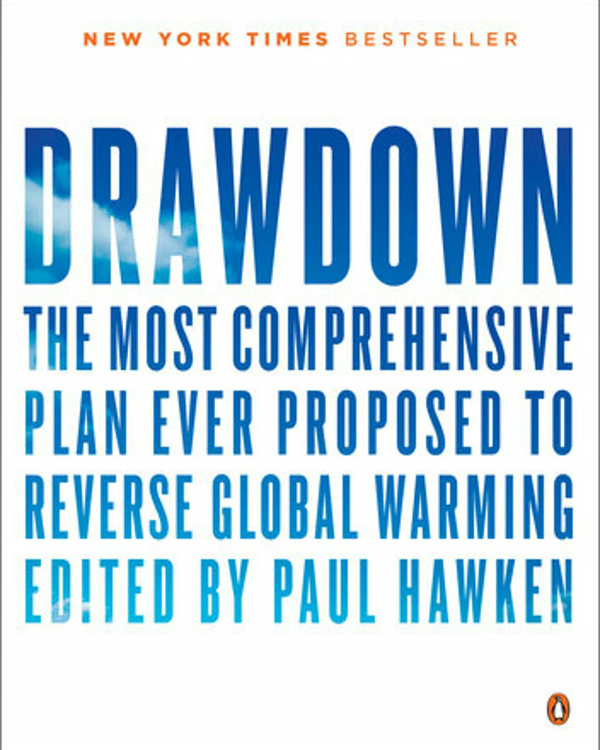 This New York Times Bestseller offers 100 of the most substantive solutions to reverse global warming, based on research by leading scientists and policymakers around the world. The goal behind the plan is to reverse the buildup of atmospheric carbon within thirty years using solutions that are already possible, well understood, and analyzed based on peer-reviewed science.
This New York Times Bestseller offers 100 of the most substantive solutions to reverse global warming, based on research by leading scientists and policymakers around the world. The goal behind the plan is to reverse the buildup of atmospheric carbon within thirty years using solutions that are already possible, well understood, and analyzed based on peer-reviewed science.
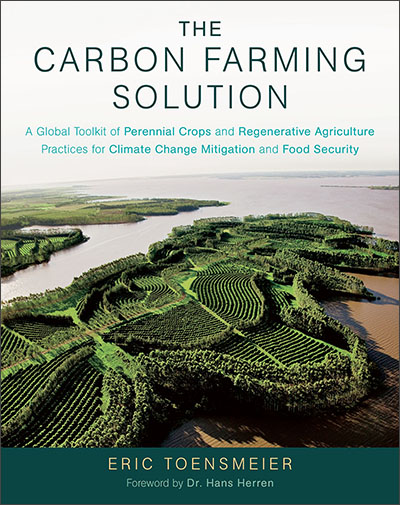 Carbon farming is a multi-strategy approach to growing crops that sequesters carbon in the soil and in above-ground biomass. When combined with a massive reduction in fossil fuel emissions and adaptation strategies for coping with our changing environment, it has the potential to bring us back from the brink of climate change catastrophe. It is not a one-size fits all approach. Multiple strategies are being developed to work with different soil conditions, weather patterns and economic realities. In this very helpful book, Eric Toensmeier brings them all together in one place, including in-depth analysis of the available research for each approach. References in each section provide information to take each practice further should the reader wish to follow through.
Carbon farming is a multi-strategy approach to growing crops that sequesters carbon in the soil and in above-ground biomass. When combined with a massive reduction in fossil fuel emissions and adaptation strategies for coping with our changing environment, it has the potential to bring us back from the brink of climate change catastrophe. It is not a one-size fits all approach. Multiple strategies are being developed to work with different soil conditions, weather patterns and economic realities. In this very helpful book, Eric Toensmeier brings them all together in one place, including in-depth analysis of the available research for each approach. References in each section provide information to take each practice further should the reader wish to follow through.
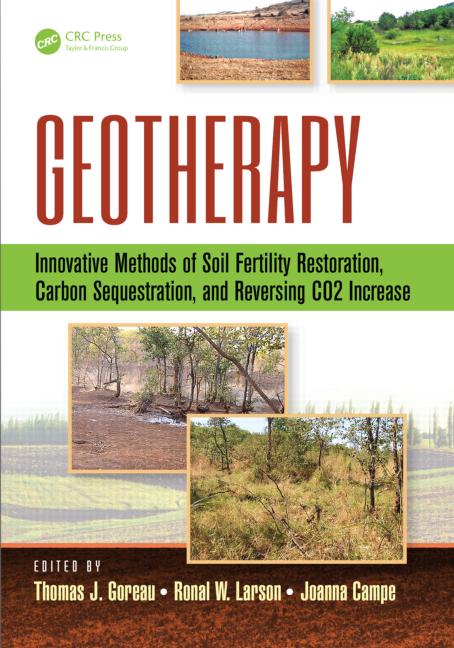 Large-scale restoration of damaged ecosystems is essential if the climate is to be stabilized. This book presents innovative new technologies for restoring the most productive ecosystems on land while maintaining high biodiversity. It serves as a guide to both policies and practical steps using original research with comprehensive data showing the benefits of these methods on every continent except Antarctica.
Large-scale restoration of damaged ecosystems is essential if the climate is to be stabilized. This book presents innovative new technologies for restoring the most productive ecosystems on land while maintaining high biodiversity. It serves as a guide to both policies and practical steps using original research with comprehensive data showing the benefits of these methods on every continent except Antarctica.
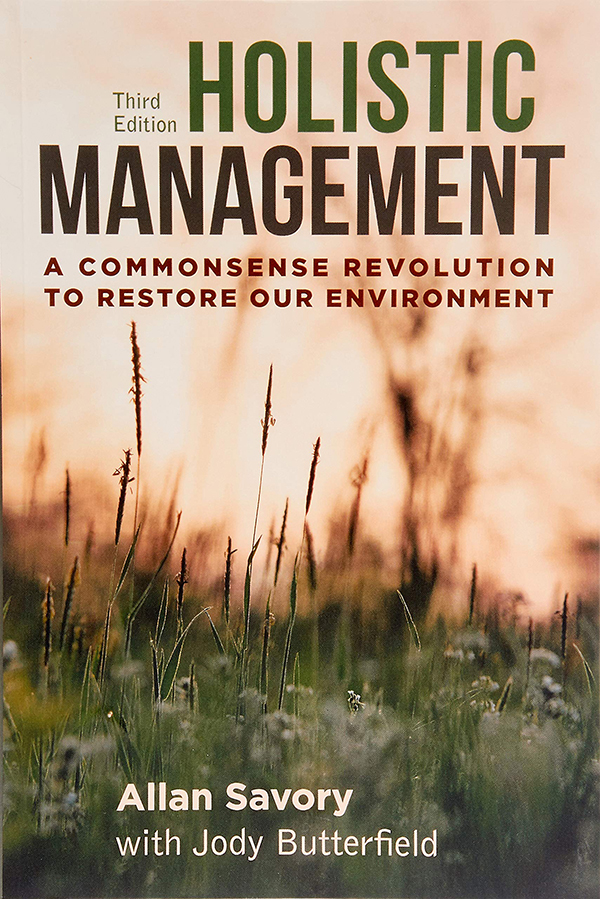 Holistic management is a systems-thinking approach for managing resources developed by Allan Savory in response to the devastating desertification in his native country of Zimbabwe. Savory believes that properly managed livestock are the key to restoring the world’s grassland soils, the major sink for atmospheric carbon, and for minimizing the most damaging impacts of climate change on humans and the natural world.
Holistic management is a systems-thinking approach for managing resources developed by Allan Savory in response to the devastating desertification in his native country of Zimbabwe. Savory believes that properly managed livestock are the key to restoring the world’s grassland soils, the major sink for atmospheric carbon, and for minimizing the most damaging impacts of climate change on humans and the natural world.
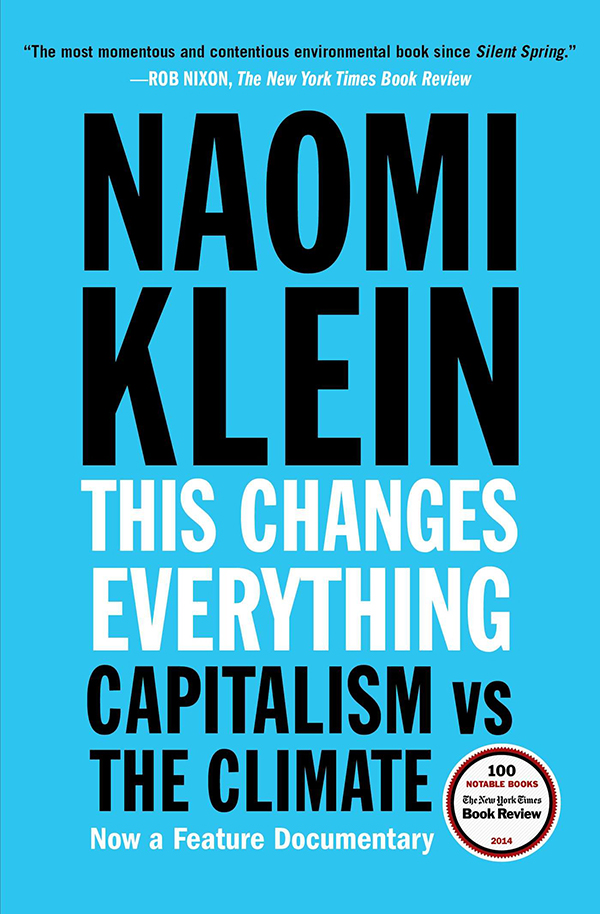 In this book, also a New York Times Bestseller, Klein proposes that the climate change crisis cannot be adequately addressed without abandoning the core “free market” ideology of our time, restructuring the global economy, and remaking our political systems. It sounds a wake-up call and then proposes how this can be done.
In this book, also a New York Times Bestseller, Klein proposes that the climate change crisis cannot be adequately addressed without abandoning the core “free market” ideology of our time, restructuring the global economy, and remaking our political systems. It sounds a wake-up call and then proposes how this can be done.
